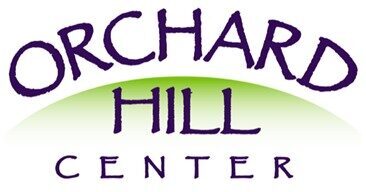by Deborah Metzger
 If the thought of meditation conjures up sitting in a lotus position for hours or chanting something unintelligible with knees screaming and legs falling asleep, let’s dispel that myth right now!
If the thought of meditation conjures up sitting in a lotus position for hours or chanting something unintelligible with knees screaming and legs falling asleep, let’s dispel that myth right now!
The fact is that most of us cannot sit still for even a nanosecond without time traveling in our minds – concerns about the future, or lingering thoughts about the past or that itch that comes up within seconds that just won’t quit….so, let go of any notion that you ‘can’t” meditate.
One technique that we teach at the Princeton Center for Yoga & Health (PCYH) is Mindfulness Meditation, which is really about training the mind to focus so that we can live our lives more fully. It’s about doing things and noticing that you’re doing them.
Mindfulness practices aid us in stopping and focusing our minds. Mindfulness helps you turn down all the noise in your head- the guilt, anger, doubts, and uncertainties that upset us moment to moment. It is a technique that encourages you to stop and smell the roses. Developing our ability to stop helps us reduce the amount of stress in our lives and be more available to the present moment – an opportunity to see reality as it is and to experience life in its fullness.
Though it sounds simple, mindfulness takes practice, and the longer you practice, the easier the process becomes.
We typically begin our Mindfulness Based Stress Reduction (MBSR), Mindfulness Based Cognitive Therapy (MBCT), and Mindfulness Based Habit Change (MBHC) programs at (PCYH) with a raisin eating exercise. It’s an easy introduction to the practice.
Take a raisin (yes, just one!) and hold it in the palm of your hand or between your finger and thumb. Imagine that you have just dropped in from Mars and have never seen an object like this.
Look at this raisin. Let your eyes explore every part of it, examine the highlights where the light shines, the darker crevasses, the folds and ridges, and any unique features.
Feel the weight of it. Turn the raisin over between your fingers. Notice its texture, its ‘topography’. Hold the raisin to your ear. Squish it a bit. Does it make a sound?
Hold the raisin beneath your nose, with each inhalation drink in any smell, aroma, or fragrance that may arise, noticing as you do this if there is anything interesting happening in your mouth or stomach.
With awareness, slowly bring the raisin up to your lips, noticing how your hand and arm know exactly how and where to position it, perhaps noticing that saliva starts to get secreted just as you bring the object towards your mouth. Gently place the object in the mouth, without chewing, noticing how it gets into the mouth in the first place. Spend a few moments exploring the sensations of having it in your mouth, exploring it with your tongue.
When you are ready, prepare to chew the raisin. Then, very consciously, take one or two bites into it and notice what happens in the aftermath, experiencing any waves of taste that emanate from it as you continue chewing. Resist the urge to swallow it. Notice the sensations of taste and texture in the mouth and how these change over time, as well as any changes in the object itself.
When you feel ready to swallow the raisin, see if you can first detect the intention to swallow as it comes up, so that even this is experienced consciously before you actually swallow the raisin.
Finally, swallow the raisin – see if you can feel the raisin going down towards your stomach and even entering your stomach. Perhaps noticing what it feels like to be one raisin heavier.
Sense how the body as a whole is feeling after completing this exercise in mindful eating. Notice your thoughts.
Notice that there is nothing magical about mindfulness. Most of us do a lot of different things when we’re eating—read, talk, watch television. Notice how slowing it down and really tasting your food helps bring you into the present moment and can really change the nature of your experience.
Often, when we do one task, we are already thinking about the next task.
So, relax, slow down. Stop and smell the roses – or taste a raisin!
About Deborah Metzger
Founder and director of the Princeton Center for Yoga & Health, Deborah Metzger, is a certified 500 Hour Professional Level Kripalu Yoga teacher and certified Dharmic Yoga Teacher and Phoenix Rising Yoga Therapist, 500 Hour Registered Yoga Teacher with the Yoga Alliance, and a Body-Centered Therapist trained in the Hakomi Method and Phoenix Rising Yoga Therapy. She is a graduate of the 2 year comprehensive Hakomi training and has taken advanced Hakomi training modules. Deborah is a licensed social worker and holds an MSW from the University of Pennsylvania. She completed the Yoga of the Heart: Cardiac and Cancer Certification Training, and additional courses in Structural Yoga Therapy and Reiki, trained with Jon Kabat-Zinn and Saki Santorelli and completed the Practicum in Mindfulness Based Stress Reduction Program at UMass Medical Center
